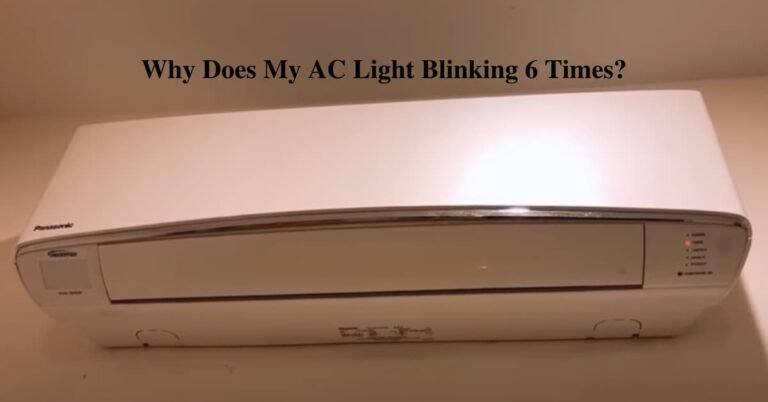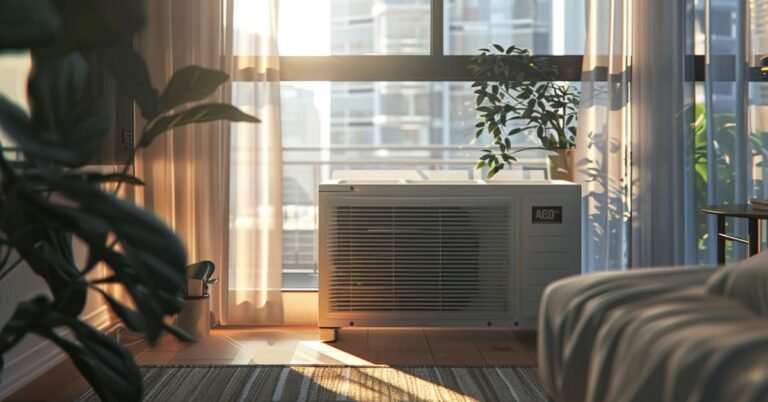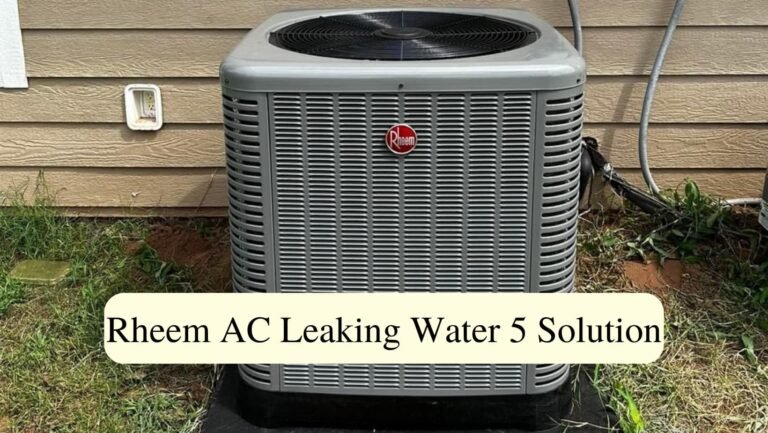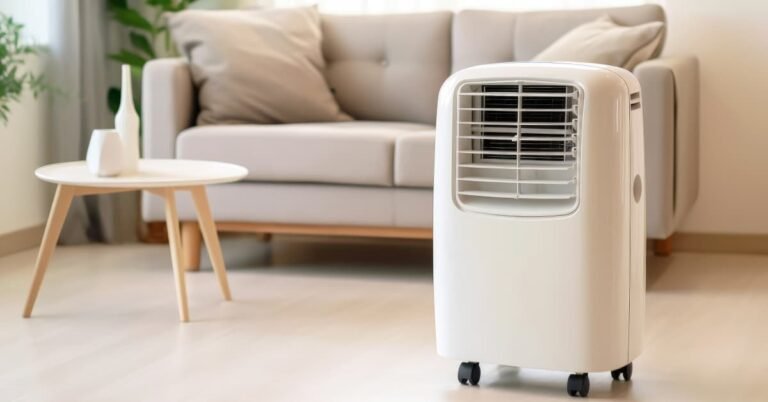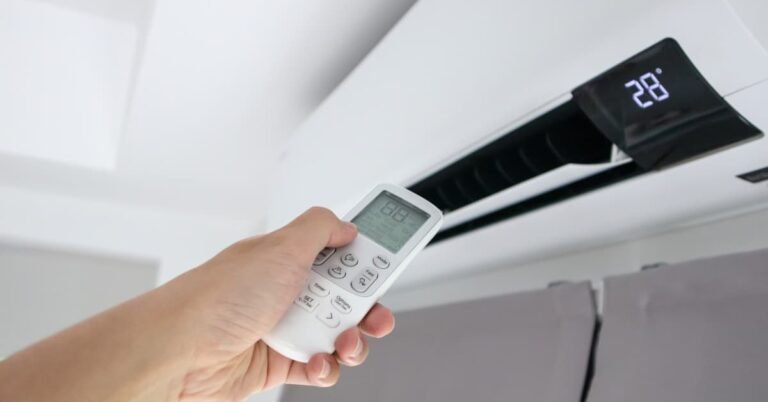Rheem AC Compressor Not Turning On – Step by Step Guide
Are you experiencing issues with your Rheem AC compressor not turning on? Don’t worry, you’re not alone. Most homeowners face this issue at some point with their AC unit.
In this guide, we will discuss the potential causes and solutions for a Rheem AC compressor not turning on.
So if you’re currently facing this problem with your Rheem AC, keep reading to find out how you can resolve it quickly.
Rheem AC Compressor Not Turning On Causes
There are a variety of causes for your Rheem AC compressor not turning on. Such as electrical problems, thermostat malfunction, refrigerant issues, compressor motor problems, and other possible factors.
Let’s dive into these causes and provide guidance to help you troubleshoot the problem effectively.
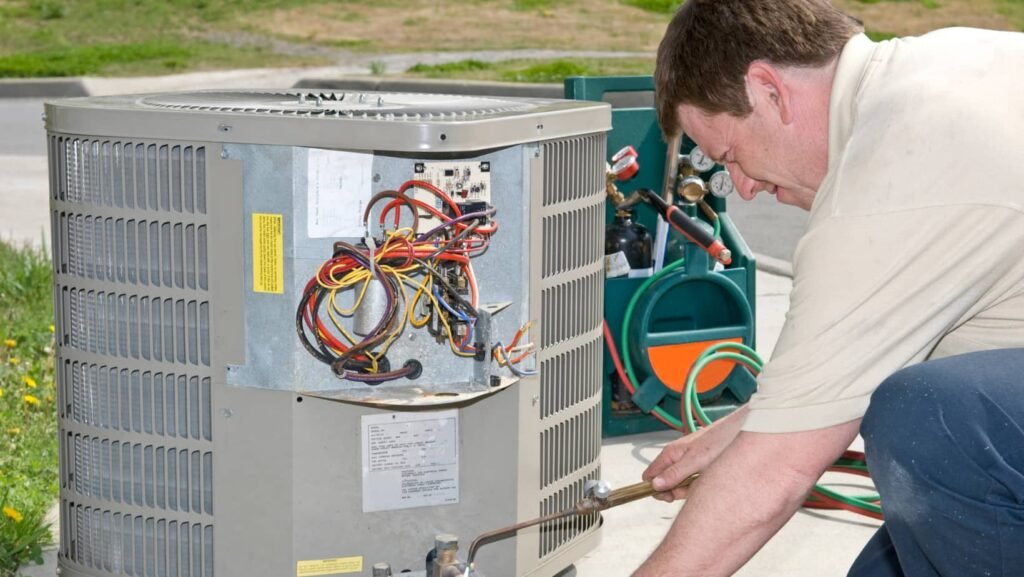
1. Electrical Issues
One of the most common causes of a Rheem AC compressor not turning on is electrical issues. This could range from a Blown Fuse to faulty wiring or connections.
Blown Fuses or Tripped Circuit Breakers
Interruptions in the electrical supply can prevent the compressor from starting. Blown fuses or tripped circuit breakers are common culprits in such situations.
Solution:
- Begin by inspecting the fuse box or circuit breaker panel.
- Look for any blown fuses or tripped circuit breakers.
- If you find a blown fuse, replace it with a new one of the same rating.
- In the case of a tripped circuit breaker, reset it by flipping it to the “Off” position and then back to the “On” position.
Faulty Capacitors
Capacitors play a crucial role in helping the compressor start and run smoothly. If they malfunction, the compressor won’t receive the necessary electrical boost.
Solution:
- Turn off the power to the AC unit.
- Locate the capacitors, usually housed in a metal or plastic box near the compressor.
- Carefully inspect the capacitors for any signs of bulging, leaking, or damage.
- If you notice any issues, it is best to replace the faulty capacitors.
- Consult a professional technician for proper identification and replacement of the capacitors.
Wiring Problems
Damaged or loose wiring connections can disrupt the electrical flow to the compressor, preventing it from turning on.
Solution:
- Ensure the power to the AC unit is turned off.
- Examine the wiring connections near the compressor for any visible damage or loose connections.
- If you find damaged wires, consult a professional technician to repair or replace them.
- Tighten any loose connections using a screwdriver or appropriate tools.
2. Thermostat Problems
Thermostat issues can also cause the AC compressor not to turn on. Incorrect settings or a malfunctioning thermostat can be the underlying culprits.
Incorrect Settings
Sometimes, the issue may not be with the compressor itself, but rather incorrect thermostat settings.
Solution:
- Check the thermostat settings to ensure they are correctly configured.
- Ensure the temperature is set to the desired cooling level.
- Verify that the thermostat is set to the cooling mode and not on “Heat” or “Off.”
Malfunctioning Thermostat
A faulty thermostat can prevent the compressor from receiving the necessary signals to turn on.
Solution:
- If you suspect a malfunctioning thermostat, consider replacing it with a new one.
- Consult the manufacturer’s instructions or seek professional assistance for proper installation and calibration.
3. Refrigerant Issues
Refrigerant-related problems can also lead to the AC compressor not turning on. Low refrigerant levels or leaks can cause the compressor to malfunction.
Low Refrigerant Levels
Inadequate refrigerant levels can result from leaks or improper installation, putting stress on the compressor.
Solution:
- It is crucial to address refrigerant-related problems promptly.
- Contact a certified technician to inspect the AC system and recharge the refrigerant to the appropriate levels.
- The technician will also investigate and repair any leaks before adding a new refrigerant.
Refrigerant Leaks
Refrigerant leaks harm the environment and hinder the performance of your AC system.
Solution:
- If you suspect a refrigerant leak, contact a professional technician immediately.
- The technician will use specialized tools to locate the leak and repair it.
- It is essential to fix refrigerant leaks promptly to ensure the proper functioning of the AC compressor.
4. Compressor Motor Problems
Issues with the compressor motor can also cause the AC compressor not to turn on. Motor failure or overheating are common problems.
Motor Failure
The compressor motor can fail due to wear and tear or overheating.
Solution:
- If the motor has failed, it will need to be replaced.
- Contact a professional technician to assess the motor’s condition and carry out the replacement.
Overheating
Compressor motors can overheat if the condenser coils are dirty or if the unit is overworked.
Solution:
- Regularly clean the condenser coils to prevent dust and debris buildup.
- Ensure the AC unit is not overworked by avoiding excessive use or allowing it to run for extended periods without breaks.
- Proper maintenance and cleaning can help prevent overheating issues.
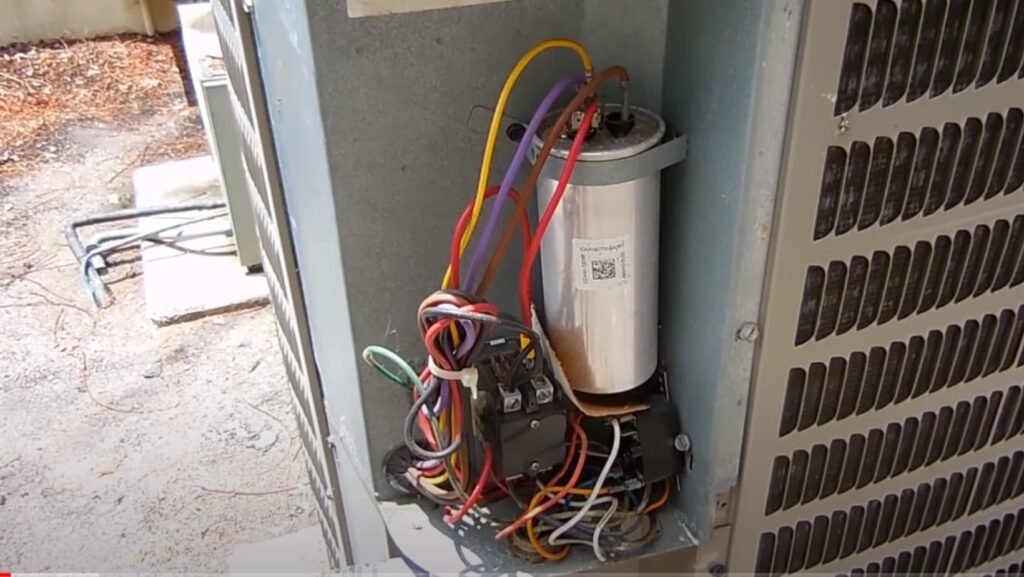
5. Other Possible Causes
Contactor Issues
The contractor is responsible for sending power to the compressor and can wear out or become damaged over time.
Solution:
- If you suspect contactor issues, consult a professional technician for inspection and replacement if necessary.
- The technician will ensure that the new contactor is compatible and properly installed.
Faulty PCB (Printed Circuit Board)
Problems with the control board can disrupt communication with the compressor, leading to startup failures.
Solution:
- If you suspect a faulty PCB, it is best to consult a professional technician.
- The technician will diagnose the issue and replace the PCB if necessary.
When to Seek Professional Help?
While DIY troubleshooting can resolve many compressor issues, certain signs indicate the need for professional HVAC services.
Refrigerant Problems: Refrigerant-related issues should always be handled by certified technicians due to safety concerns and environmental regulations.
Compressor Motor Replacement: Replacing a compressor motor is a complex task that requires expertise.
Electrical Problems: If you suspect electrical issues beyond basic wiring checks, a professional should diagnose and repair them.
Complex Control Board Problems: Issues with the control board often necessitate professional diagnostics and repair.
Benefits of Hiring a Certified Technician
When it comes to your AC system, there are several advantages to enlisting the help of a qualified HVAC technician.
Expertise: HVAC professionals are trained and experienced in diagnosing and fixing complex issues.
Safety: They know how to handle refrigerants and electrical components safely.
Warranty Preservation: Professional repairs may be necessary to maintain your AC unit’s warranty.
Long-Term Reliability: Proper repairs can ensure the long-term reliability of your AC system.
Preventive Maintenance Tips
To minimise the risk of your Rheem AC compressor failing, consider the following preventive maintenance tips.
Regularly Clean or Replace Filters: Clogged filters can strain the system and lead to compressor problems. Clean or replace filters according to the manufacturer’s recommendations.
Keep the Condenser Clean: Ensure the outdoor condenser unit is free from debris, leaves, and other obstructions that can impede airflow.
Schedule Professional Maintenance: Arrange annual or bi-annual maintenance appointments with a licensed HVAC technician to inspect and tune up your system.
Address Issues Promptly: If you notice any of the common symptoms mentioned earlier, don’t delay in addressing them. Early intervention can prevent more significant problems.
Programmable Thermostat: Consider installing a programmable thermostat to regulate temperature settings efficiently.
Conclusion
When your Rheem AC compressor refuses to turn on, it can be frustrating, especially during the scorching summer months.
By understanding the common causes, following the troubleshooting steps, and knowing when to seek professional help, you can tackle compressor issues effectively and ensure your home remains cool and comfortable.
Remember that safety should always be a top priority. If you’re uncertain about any aspect of troubleshooting or repair, it’s best to consult a certified HVAC technician.
So, stay cool, stay informed, and enjoy the comfort of your Rheem AC system year-round.


